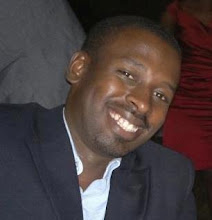Entrepreneurs and investors are making the most of the world’s excitement about clean technology, hammering out innovations in every energy-related field. Many of the projects show great promise for helping to meet the greenhouse-gas limits discussed at the recent UN climate summit in Copenhagen, but few people grasp this disturbing reality: Even if energy innovations have a lot of potential, they might not be deployable until it’s too late. History shows that most of the technology breakthroughs need decades to make it to the mass market.
To cut global emissions in half over the next 40 years, as scientists recommend, clean technologies must be rolled out on a vast scale. In the past, they have taken 19 to 30 years to achieve wide use, say researchers at the UK think tank Chatham House and the patent-search firm CambridgeIP.
To be sure, powerful new market forces are at work: Governments beyond Europe are set to impose limits on greenhouse gases, and companies in a range of sectors are searching hard for ways to curb emissions. But technology deployment always takes time.
That is particularly true of energy-related inventions, which tend to get into big trouble on their way out of the incubator and into the marketplace. Entrepreneurs scrounge for capital, investors struggle to manage the risks of emerging technologies, patents get bought and sold but not necessarily used, and incumbent energy giants hesitate to give up their existing equipment.
Since irreversible climate change is already upon us, there isn’t time to sit and wait years for great innovations to wend their way toward everyday use.
A Moore’s Law for Clean Tech?
With the stakes this high and the outlook this unclear, businesses must begin making better clean-tech investments immediately, especially given the length of time before implementation. Looking at the slate of possible solutions, inventors and investors alike need to understand more quickly how much carbon emissions can really be abated and which innovations will be most effective at addressing the problem in the least amount of time.
In our work with an array of energy-related companies, we’ve become envious of the immense benefit the computer industry derives from a simple insight dating to 1965: Gordon Moore’s conjecture that the number of transistors on a chip, and thus its processing speed, would double every 18 months. Moore’s law, as it is known, is far more than an uncanny prediction. It is a pillar of high-tech industries, allowing entrepreneurs, investors, corporations, and governments to bank on the relentless acceleration of computing power. Microsoft, for example, factors in the arrival of next-generation processors when developing its ever more complex software. In other sectors, companies as diverse as Boeing, Pfizer, and Goldman Sachs rely on steadily advancing computer power when they develop new products and strategies.
That’s exactly the confidence level that businesses and governments require to respond to global energy challenges. They need a conceptual framework that would predict the pace of clean-tech innovation and deployment—taking full account of the maddening lag between the two—as well as reveal which technologies promise to do the greatest good on the fastest schedule. A clean-tech equivalent of Moore’s law could pave the way for more-focused innovation, more-efficient use of capital, and more-realistic regulations. It also could aid investors and governments in their efforts to decrease key technologies’ time to market by spurring, for example, joint manufacturing initiatives, cross-licensing agreements, and tariff exemptions.
Source: Harvard Business Review














